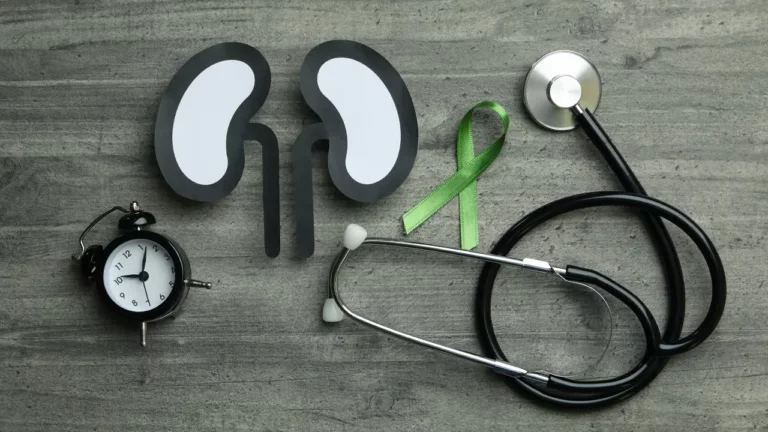In the realm of healthcare, staying on top of important numbers is crucial. We’re not talking about your age, though! It’s all about keeping tabs on vital health metrics like blood pressure, cholesterol levels, blood sugar, and body composition. These numbers can be early indicators of health issues, and continuous monitoring is essential to ensure timely intervention. In this article, we’ll focus on the realm of body composition and explore how digital scales, like the ones offered by DrKumo, are revolutionizing remote patient monitoring.
The DrKumo Digital Scale: Revolutionizing Remote Patient Monitoring
The DrKumo Digital Scale is no ordinary scale; it’s a cutting-edge tool designed for remote patient monitoring, making it a game-changer in healthcare. This innovative device measures and computes a comprehensive set of 12 body composition parameters, providing valuable insights into a patient’s health and wellness.
1. Body Mass Index (BMI)
The CDC uses this thing called BMI to figure out if someone’s weight is in a healthy range or not. It’s basically your weight in kilograms divided by the square of your height in meters. If your BMI is between 18.5 and 24.9, you’re considered to have a healthy weight. Below 18.5, and you’re considered underweight. But if it’s between 25 and 29.9, you’re in the overweight category, and if it’s over 30, they label it as obese.
| BMI for Adults | |
| Underweight | Below 18.5 |
| Normal | 18.5 – 24.9 |
| Overweight | 25 – 29.9 |
| Obese | 30 and above |
But here’s the thing, sometimes BMI doesn’t tell the whole story, especially when it comes to athletes. See, athletes tend to have more muscle, which weighs more than fat. So even if their BMI is on the higher side, they might not actually be overweight or obese. It’s a bit of a quirk in the system, but it’s important to remember that BMI isn’t the only measure of health.
2. Body Fat Percentage
Body fat percentage is all about how much fat you have in relation to your total body weight. The American Council on Exercise says that, on average, women tend to have a body fat percentage between 25% and 31%, while men usually fall between 18% and 24%.
| Healthy Body Fat Percentage | |
| Men | 18 – 24% |
| Women | 25 – 31% |
Now, having some body fat is actually important because it’s like the body’s energy reserve. It helps us do everyday activities. But here’s the catch: too much of it can be a real problem. Studies have shown that having too much body fat can up your risk for things like high blood pressure, heart disease, and type 2 diabetes. So, while a healthy amount of body fat is good, too much isn’t doing your long-term health any favors.
3. Basal Metabolic Rate (BMR)
BMR, or Basal Metabolic Rate, is the energy your body needs for essential functions at rest, like keeping your heart and organs running. It’s crucial because it tells you the minimum calories needed for daily function, whether you aim to maintain, lose, or gain weight.
However, as you age, your BMR naturally decreases due to muscle loss, known as sarcopenia. Starting in your 30s, you may lose 3-5% of muscle mass per decade. The good news? You can rebuild and maintain muscle through monitoring and adjusting based on your BMR. Additionally, those with sarcopenia face a higher risk of fractures from falls, emphasizing the importance of preserving muscle health for overall well-being as you age.
4. Muscle Mass
Muscle mass is the estimated weight of the muscle in your body, including skeletal, cardiac, and digestive muscles, along with the water they hold. It varies from person to person, so there’s no fixed range. Having more muscle has some great health perks. It boosts your metabolism, helps prevent falls, and reduces the risk of chronic illnesses. Plus, a study in the Journal of Clinical Endocrinology and Metabolism even suggests that higher muscle mass can delay, if not outright prevent, diabetes. So, if you’re thinking about increasing your muscle mass, you’re on the right track to better health.
5. Body Water
The amount of fluid in your body, known as Total Body Water, is crucial for your health. For men, it should ideally be between 50% and 65%, while for women, it should be between 45% and 60%.
| Healthy Total Body Water | |
| Men | 50 – 65% |
| Women | 45 – 60% |
Our bodies are mostly water, and it plays a vital role in regulating our temperature and getting rid of waste through sweating and urinating. This is essential for our overall well-being. That’s why experts recommend drinking at least two liters of water daily to stay properly hydrated. It’s a simple way to keep your body functioning at its best.
6. Visceral Fat
Visceral fat is a type of body fat that’s tucked away deep in your belly, around your vital organs. You want to aim for a healthy Visceral Fat level between 1 and 12.
| Healthy Visceral Fat Level |
| 1-12 |
In the world of healthcare, we know that having too much of this fat can cause problems. It’s linked to insulin resistance, which can lead to issues like glucose intolerance and type 2 diabetes. But here’s the good news: having the right amount of visceral fat can actually lower your risk of chronic diseases like heart disease, high blood pressure, and type 2 diabetes. So, keeping that belly fat in check is a smart move for your health!
7. Bone Mass
Bone Mass is the computation or estimated weight of bone mineral in the body. Studies suggest that a healthy bone mass for women weighing less than 50 kg is 1.95 kg. For women weighing between 50 to 75 kg, the healthy bone mass is 2.40 kg and for those weighing more than 75 kg, the healthy bone mass is 2.90 kg. On the other hand, for men weighing less than 65 kg, the healthy bone mass is 2.65 kg. For those weighing between 65 to 95 kg, the healthy bone mass is 3.29 kg and those that are over 95 kg, the healthy bone mass is 3.69 kg.
| Healthy Bone Mass for Men | |
| Less than 65 kg (143.30 lb) | 2.65 kg (5.84 lb) |
| 65 – 95 kg (143.30 – 209.44 lb) | 3.29 kg (7.25 lb) |
| Over 95 kg (209.44 lb) | 3.69 kg (8.13 lb) |
| Healthy Bone Mass for Women | |
| Less than 50 kg (110.23 lb) | 1.95 kg (4.299 lb) |
| 50 – 75 kg (110.23 – 165.34 lb) | 2.40 kg (5.29 lb) |
| Over 75 kg (209.44 lb) | 2.90 kg (6.39 lb) |
To keep your bones strong, it’s a good idea to eat foods that are rich in calcium and engage in weight lifting exercises. These steps will help you maintain a healthy bone mass and support your overall bone health.
8. Protein
Protein Mass is all about the amount of protein in your body. You want it to be at a healthy level, which means it should be 17% or more.
| Healthy Protein Mass |
| 17 % or more |
Having low protein mass can be connected to having too much body fat. To get into that healthy protein range, you should make sure that 12% to 20% of your daily calories come from protein.
As we get older, our bodies need more protein because of something called anabolic resistance. This basically means our bodies become less efficient at breaking down and making new protein.
A study in the American Journal of Clinical Nutrition found that if you eat a bit more high-quality protein spread throughout the day, it can help you build and maintain muscle, especially as you get older. So, having enough protein is not just about muscles; it’s about staying strong and healthy as you age.
9. Subcutaneous Fat
Subcutaneous fat is the fat stored just under your skin. To keep things healthy, here’s the range you should aim for:
| Healthy Subcutaneous Fat Level | |
| Men | 8 – 25% |
| Women | 20 – 35% |
Now, having the right amount of subcutaneous fat is like having an energy reserve for your body. It’s what your body uses when you need some extra fuel for activities.
Interestingly, as you get older, fat tends to accumulate around your waist, even if your overall weight and body fat levels don’t change much. So, keeping an eye on your subcutaneous fat is a smart way to stay healthy and active.
10. Standard Weight
Standard weight is like a recommended healthy weight for someone, and it takes into account things like your height, gender, age, and body type.
It’s a useful guideline to help you figure out what a healthy weight might be for you personally. So, it’s a tool that can assist you in staying healthy and feeling your best.
11. Body Weight
Body weight is simply a way to measure how heavy a person is, either in pounds or kilograms. It’s a straightforward and important metric for understanding health and fitness.
12. Heart Rate
Your heart rate is like a measure of how fast your heart beats in a minute. When you’re at rest, a healthy heart rate should be between 60 and 100 beats per minute (BPM). But when you’re exercising, it’s normal for it to go up to a range of 130 to 160 BPM.
Keeping your heart rate in these healthy ranges is a good sign that your heart is doing its job well. So, whether you’re relaxing or working out, it’s essential to pay attention to your heart rate for a healthy and active life.
How Digital Scales Work in Remote Patient Monitoring
DrKumo Digital Scale is a smart tool designed to help you manage your weight and health more effectively. This scale has special sensors that come into contact with the soles of your feet when you step on it. These sensors send tiny electrical signals through your body. These signals encounter different levels of resistance from your muscles and other substances in your body. This resistance data is then sent to the DrKumo Mobile App, which does some clever calculations to figure out your body composition.
Here’s how it works:
- Connect and Pair: First, connect your DrKumo Digital Scale to your smartphone using Bluetooth.
- Open the App: Launch the DrKumo Mobile App on your smartphone.
- Autopilot Mode: Tap the Autopilot button in the app.
- Step On the Scale: Place your feet on the DrKumo Digital Scale.
- Wait a Moment: Give it a few seconds.
- Instant Results: All the important details about your body, such as muscle mass and body fat percentage, are calculated for you.
- Access Your Data: You can easily view these numbers on your DrKumo Mobile App.
- Secure Data Storage: Your data is also sent to a secure cloud database for safekeeping.
- Healthcare Provider Access: Your healthcare provider can access this database to better understand your health.
- Personalized Plan: With this information, your healthcare provider can create a personalized plan to manage your treatment or help you achieve your health goals.
So, in simple terms, DrKumo Digital Scale is like having a smart health companion that helps you keep an eye on your body composition. It’s easy to use, and it’s a valuable tool for both you and your healthcare provider in managing your health and weight.
Why Continuous Body Composition Monitoring Matters
Keeping track of your weight is crucial for maintaining good health. Whether you’re an athlete or dealing with chronic illness, your body composition matters. Let’s break it down:
- Weight Matters: The numbers on the scale can impact your health. Too much or too little body composition can lead to serious issues like high blood pressure, diabetes, heart disease, and more.
- Weight Gain Warning: If you’ve put on 11 to 22 pounds since your 20s, you’re at risk for heart disease, high blood pressure, type 2 diabetes, and gallstones. If it’s more than 22 pounds, the risk goes up.
- Weight Loss Caution: Losing weight in an unhealthy way can also be a red flag. It can lead to muscle loss, a slower metabolism, and nutritional deficiencies, not to mention the risk of gallstones.
- Monitoring Matters: Regularly tracking your body composition is essential, especially if you have chronic health issues. It helps you and your healthcare provider determine the right treatment and health plan.
- Choosing the Right Scale: Picking the right weighing scale matters too. Look for one that’s accurate and reliable to get the most useful data.
In a nutshell, whether you’re an athlete or dealing with health challenges, paying attention to your body composition and keeping an eye on those numbers can make a big difference in your well-being.
FAQs
1. How do digital scales work in monitoring body composition?
Digital scales that measure body composition use a method called electrical impedance. When you step on these scales, they send a small electrical signal through your body. This signal encounters resistance from your muscles and other substances in your body. The scale then calculates various health metrics based on this resistance.
2. What is the significance of body composition monitoring for health?
Monitoring your body composition is vital for your health. It provides insights into essential health metrics and can help identify potential risks like high blood pressure, diabetes, and heart disease. By keeping track of your body composition, you can manage your weight and collaborate with your healthcare provider to create a personalized treatment plan.
3. Can digital scales help with personalized health plans?
Absolutely. Digital scales, like those offered by DrKumo, provide valuable data that healthcare providers use to create personalized health plans tailored to your unique needs and goals.
4. How is data from digital scales securely stored and accessed by healthcare providers?
The data collected by digital scales is typically sent to a secure cloud database, ensuring its safety and protection. Healthcare providers have access to this database, enabling them to better understand your health and create personalized treatment plans with confidence.
5. What should I look for when choosing a digital scale for body composition monitoring?
When selecting a digital scale for body composition monitoring, consider a few key factors. Look for accuracy and reliability to ensure you’re getting trustworthy data. Check if it’s compatible with mobile apps for convenient tracking. Also, ensure it measures a wide range of body composition parameters to meet your specific health monitoring needs.
Takeaways
Digital scales, like the ones from DrKumo, are changing the game when it comes to keeping tabs on your health. They go way beyond just telling you your weight; they give you a full picture of your body. By keeping a constant eye on these important stats, you and your healthcare team can team up to make sure you’re feeling your best.
No need to wait – start your journey to a healthier you right now. Reach out to DrKumo and check out our cool range of digital scales. You’ll be arming yourself and your healthcare provider with all the info needed to make sure you’re on the right track for a healthier future. Let’s work together to maximize your health outcomes. Contact DrKumo today!








